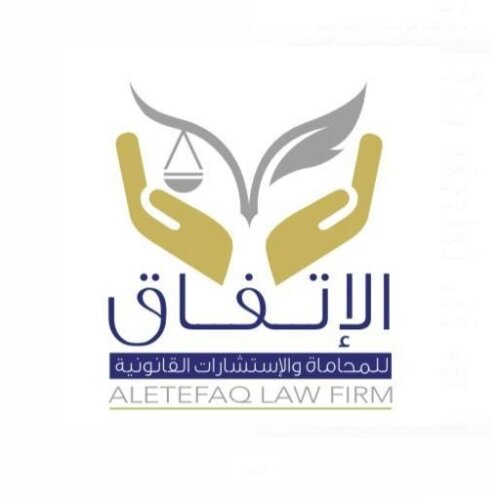Best Ethics and Professional Responsibility Lawyers Near You
Share your needs with us, get contacted by law firms.
Free. Takes 2 min.
Or refine your search by selecting a city:
List of the best lawyers
Ethics and Professional Responsibility Legal Questions answered by Lawyers
Browse our 25 legal questions about Ethics and Professional Responsibility and read the lawyer answers, or ask your own questions for free.
- My Isle of Man solicitor copied my emails to the other side—can I complain or get the file transferred?
- I discovered my solicitor forwarded some of my emails and draft notes to the opposing party without asking me first. I’ve lost trust and want to move my matter to a new firm. What are my options to complain and to obtain my full file quickly?
-
Lawyer answer by Ascendance International Consulting (A-I-C)
I’m sorry to hear about the breach of confidence by your solicitor. In the Isle of Man, solicitors are regulated by the Isle of Man Law Society, and they owe you a duty of confidentiality under both the Solicitors’ Code...
Read full answer - Can I report my lawyer in Lithuania for conflict of interest if they also advised my employer?
- I hired a lawyer for an employment dispute, and I later found out they had previously advised my employer on related matters. They did not disclose this to me before taking my case. What are my options to file an ethics complaint, and could this affect my ongoing case?
-
Lawyer answer by Juriscon
Good day, Nice to hear you. You have the right to change your lawyer solely because of a conflict of interest. A lawyer cannot represent both parties if their interests are contradictory, as this is considered a conflict of interest....
Read full answer - Can I report my lawyer in Panama for sharing my case details with the other side?
- My lawyer mentioned private facts from my case in a meeting where the other party and their lawyer were present. I never consented to any disclosure and I feel it harmed my position. What is the complaint process and can I change lawyers without delaying my case?
-
Lawyer answer by Ascendance International Consulting (A-I-C)
Thank you for raising this concern. In Panama, lawyers are generally bound by professional duties of confidentiality and loyalty to their clients. If private or sensitive information from your case was disclosed without your consent and outside what was reasonably...
Read full answer
Ethics and Professional Responsibility Legal Articles
Browse our 2 legal articles about Ethics and Professional Responsibility written by expert lawyers.
- Anti-Corruption Compliance for Global Firms in Nigeria
- Strict adherence to the Corrupt Practices and Other Related Offences Act is mandatory for all foreign subsidiaries operating in Nigeria. Annual compliance filings with the Corporate Affairs Commission (CAC) are required to maintain good standing and avoid heavy penalties. Global firms must implement localized whistleblowing policies that protect employees while... Read more →
- AML Compliance Guide for Holding Companies in Ireland
- International holding companies in Ireland must comply with updated Beneficial Ownership Register (RBO) requirements, including identity verification through Personal Public Service (PPS) numbers. The 2026 regulatory landscape introduces the EU Anti-Money Laundering Authority (AMLA), which will directly supervise high-risk entities and standardize enforcement across Ireland and the EU. Every Irish... Read more →
About Ethics and Professional Responsibility Law
Ethics and Professional Responsibility Law governs the conduct of professionals in various fields, ensuring they adhere to ethical standards, legal obligations, and specific codes of conduct related to their profession. This area of law is designed to maintain the integrity, trustworthiness, and accountability of professionals like lawyers, doctors, and accountants, among others. These laws cover issues related to professional misconduct, conflicts of interest, confidentiality, and fiduciary duties.
Why You May Need a Lawyer
There are several situations where you might require legal help in the field of Ethics and Professional Responsibility:
- Facing allegations of professional misconduct or malpractice.
- Involvement in a dispute over ethical and legal obligations in your professional capacity.
- Seeking to understand and comply with ethical guidelines in your industry.
- Defending oneself against accusations of breaching fiduciary duties or confidentiality agreements.
- Need for drafting, reviewing, or disputing professional conduct policies.
Local Laws Overview
Local laws related to Ethics and Professional Responsibility vary by jurisdiction, but generally include:
- Professional Codes of Conduct: Specific guidelines established by professional boards or associations.
- State Licensing Requirements: Regulations related to obtaining and maintaining professional licenses.
- Disciplinary Procedures: Processes for handling complaints or allegations of professional misconduct.
- Confidentiality Rules: Laws concerning the retention and sharing of sensitive information.
It is crucial for professionals to stay informed and compliant with these and other relevant local laws to avoid legal issues.
Frequently Asked Questions
What is professional misconduct?
Professional misconduct refers to actions or behavior that violate the ethical or legal standards set for a specific profession.
How can I address allegations of unethical conduct?
It is important to engage a lawyer experienced in professional responsibility law to respond appropriately and protect your rights and reputation.
What should I do if I witness unethical behavior in my workplace?
Report the behavior to your employer or relevant authorities, and consider consulting a legal expert to understand your obligations and rights.
Can professional ethics vary between professions?
Yes, each profession typically has its own set of ethical standards and guidelines established by industry-specific regulatory bodies.
What are the consequences of breaching professional conduct rules?
Consequences can include disciplinary actions, suspension or revocation of a professional license, and potential legal liability.
How to file a grievance against a professional for misconduct?
Contact the relevant professional regulatory body and follow their prescribed procedure for filing grievances.
Can legal advice help me understand industry-specific codes of conduct?
Yes, experienced lawyers can help interpret and advise on industry-specific ethical guidelines and legal requirements.
What is a fiduciary duty?
A fiduciary duty is a legal obligation to act in the best interest of another party, such as clients or stakeholders, prioritizing their trust and interests.
Does professional responsibility law apply to all professionals equally?
While the core principles apply universally, specific rules and standards can differ based on profession and jurisdiction.
How often should professionals update themselves about ethical guidelines?
Continual education is crucial; professionals should regularly update themselves per their industry's latest regulations and ethical practices.
Additional Resources
- Professional Regulatory Bodies: Most professions have licensing boards offering resources and guidelines.
- State Bar Associations: For lawyers, these provide numerous resources on ethics and professional responsibility.
- Continuing Education Programs: Courses designed to keep professionals informed about current ethical and legal obligations.
- Governmental Agencies: Institutions offering legal advice and resources related to professional practices.
Next Steps
If you believe you need legal assistance in Ethics and Professional Responsibility:
- Research and reach out to a lawyer experienced in your specific area of need.
- Prepare any relevant documentation or evidence related to your case.
- Schedule a consultation to evaluate your situation and understand the available legal options.
- Consider attending workshops or seminars to further educate yourself about ethics in your field.
Taking these steps will help you navigate through potential legal challenges effectively while maintaining the standards expected in your profession.
Lawzana helps you find the best lawyers and law firms through a curated and pre-screened list of qualified legal professionals. Our platform offers rankings and detailed profiles of attorneys and law firms, allowing you to compare based on practice areas, including Ethics and Professional Responsibility, experience, and client feedback.
Each profile includes a description of the firm's areas of practice, client reviews, team members and partners, year of establishment, spoken languages, office locations, contact information, social media presence, and any published articles or resources. Most firms on our platform speak English and are experienced in both local and international legal matters.
Get a quote from top-rated law firms — quickly, securely, and without unnecessary hassle.
Disclaimer:
The information provided on this page is for general informational purposes only and does not constitute legal advice. While we strive to ensure the accuracy and relevance of the content, legal information may change over time, and interpretations of the law can vary. You should always consult with a qualified legal professional for advice specific to your situation.
We disclaim all liability for actions taken or not taken based on the content of this page. If you believe any information is incorrect or outdated, please contact us, and we will review and update it where appropriate.
Browse ethics and professional responsibility law firms by country
Refine your search by selecting a country.

















